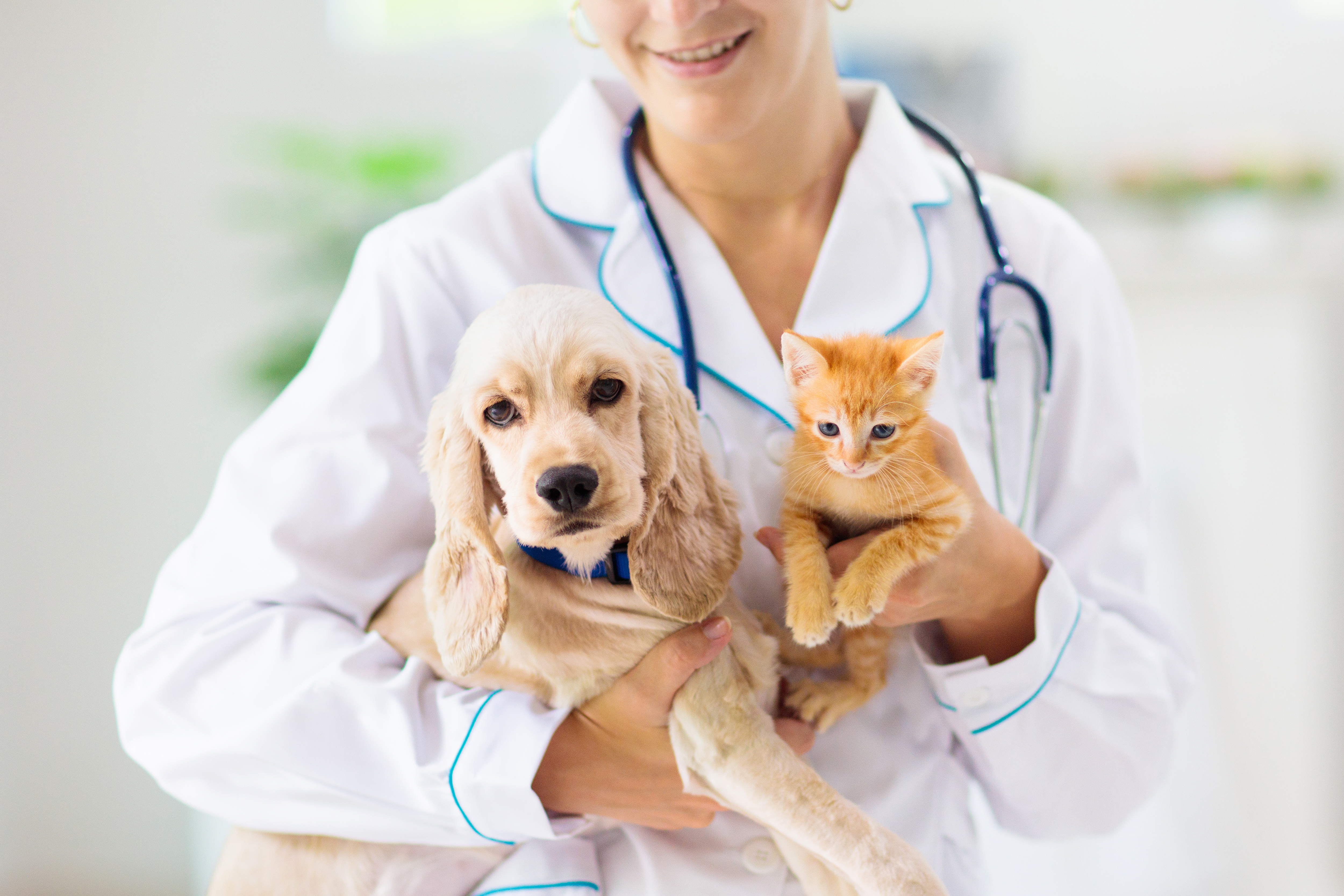
Don't Forget to Make New Year's Resolutions for Your Pet, Too!
The new year is just a few days away, and for many people, that means a fresh start and a new set of goals. New year’s resolutions are all about bettering yourself—whether you’re focused on your health, fitness, social life or other personal achievements. While you’re setting goals for yourself in the new year, don’t forget to make a few resolutions for your pets, as well!
Pets can’t make and set goals for their wellbeing in the same ways we can, so it’s up to us as pet owners to set goals for them and help them become their healthiest and happiest selves. While every pet and family will have different needs and wants, here are a few suggestions for attainable and beneficial new year’s resolutions for pets.

- Exercise more: Hitting the gym more often is a super-common new year’s resolution for humans, but making the resolution for both you and your pet can help you both stay on track with your fitness next year! Many pet owners let their furry friend’s exercise plans fall to the wayside over time; doing so can lead to pet obesity and other health problems. In the new year, make an extra effort to go on more frequent walks or hit the doggie gym multiple times a week to ensure you and your pet are staying active.
- Try new things: Pet routines can become stagnant over the years, and this can hurt pets more than you realize. Both dogs and cats need regular physical and mental stimulation, so doing the same things over and over every day can lead to boredom, behavioral problems and even cognitive decline. Make a goal of trying something new in the new year, whether it’s taking your pup on a monthly adventure to somewhere new, trying out a new form of exercise like swimming or hiking or teaching your pet a few new tricks.
- Feed better food: Not all pet food is made equal. Certain types of food may contain harmful or low-quality ingredients that can contribute to pet obesity or health problems, while other forms of food may not be nutritionally appropriate for your pet’s life stage. In an effort to help your pet “eat healthier” in the new year, do some research into top-quality pet food brands and discuss options with your vet.
- Add health supplements: Health supplements can be amazing additions to your pet’s wellness routine in the new year. Whether you choose supplements to treat your pet’s existing health conditions, general nutritional supplements or supplements designed for preventative care and maintenance, natural supplements are sure to help your pet look and feel better year-round.
- Brush pet’s teeth: Many pet parents aren’t aware that they should be brushing their pet’s teeth. One of the most common health problems cats and dogs experience as they age is periodontal disease, and it’s caused by a lack of oral hygiene in their formative years. This can lead to discomfort, pain, tooth loss and the spread of harmful bacterial over time. Make a goal to brush your pet’s teeth at least twice a week in the new year—or once per day if you’re ambitious!
- Feed fewer treats: Treats are wonderful surprises for pets and are great ways to reward good behavior, assist in training and show your pet you love them. Unfortunately, treat feeding can quickly get out of hand, and many pet owners discover that their pets are packing on the pounds due to excessive treat giving. While it’s okay to feed your pet treats every once in a while, think about treats like cake and ice cream for humans—you don’t want to eat them all the time!
- Establish better grooming habits: For both cats and dogs, grooming is an essential routine that helps both your pet’s health and you and your pets to bond. Brushing your cat or dog once per day can help reduce shedding and hairballs, as well as improve the health and appearance of their skin and coat.
- Visit the vet: When is the last time your pet paid a visit to the veterinarian? Dogs and cats should see the vet at least once a year to get caught up on all their necessary vaccinations and have a general wellness check. Vets are able to pick up on the signs of illness much faster than we are, so a yearly checkup is essential to make sure they’re still in good health.

New year’s resolutions aren’t just for people—they’re a fantastic idea for your pet too. And, since most of them require participation on your part, as well, setting new year’s resolutions for your four-legged friends just may help you stick to your own resolutions. Happy new year!


